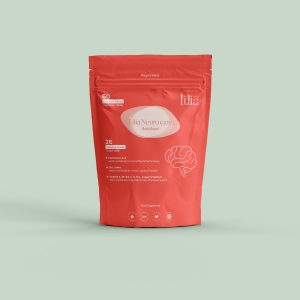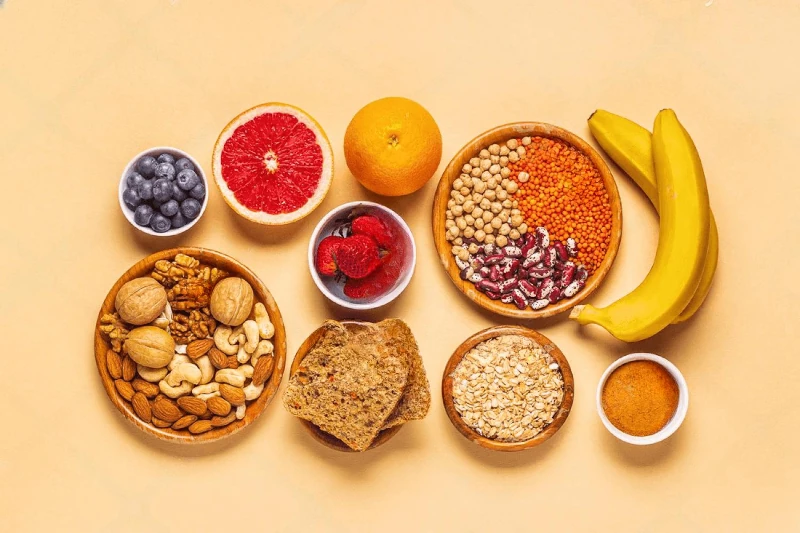جدول محتواها
What are the foods for stress reduction? Stress has become an almost ubiquitous part of modern life. While many turn to meditation or exercise to manage stress, diet can also play a significant role. Stress reduction foods offer a natural and delicious way to combat the negative effects of chronic stress. By incorporating foods rich in antioxidants, such as berries and leafy green vegetables, we can help reduce oxidative stress, a primary contributor to many stress-related health problems.
The Gut-Brain Connection: How Food Affects Mood
The intricate connection between our gut and brain is increasingly understood. This gut-brain axis plays a pivotal role in our mood and overall well-being. The foods we consume significantly influence the composition of our gut microbiome, a community of trillions of microorganisms that live in our digestive system. An imbalance in this microbiome can contribute to various health issues, including mood disorders. By consuming foods that help with stress reduction, such as fermented foods, fatty fish, and probiotics, we can nourish our gut bacteria, reduce inflammation, and support a healthier mind.
Nutrient-Dense Powerhouses
Nutrient-dense foods are like nutritional powerhouses, packed with essential vitamins, minerals, and antioxidants. These foods play a pivotal role in supporting overall health and well-being. Oxidative stress reduction foods, such as berries, leafy green vegetables, and nuts, are particularly beneficial. These foods are rich in antioxidants that help neutralize harmful free radicals in the body, reducing oxidative stress and protecting cells from damage. Incorporating these nutrient-dense foods into your diet can help boost your immune system, reduce inflammation, and improve your mood.
The Role of Antioxidants

Antioxidants play a crucial role in protecting our bodies from oxidative stress, a condition linked to various health problems, including chronic diseases. When our bodies undergo stress, they produce harmful free radicals that can damage cells. Antioxidants act as scavengers, neutralizing these free radicals and reducing oxidative damage. By incorporating foods for stress reduction rich in antioxidants, such as berries, dark chocolate, and green tea, into our diet, we can support our body’s natural defense mechanisms and promote overall well-being.
The Mood-Boosting Benefits of Omega-3 Fatty Acids
Omega-3 fatty acids have gained significant attention for their role in supporting overall health and well-being. These essential fats are particularly beneficial for brain health. By incorporating stress reduction foods rich in omega-3s, such as fatty fish, flaxseeds, and walnuts, into your diet, you can help improve your mood, reduce symptoms of anxiety and depression, and enhance cognitive function. Omega-3s work by reducing inflammation in the brain and increasing the production of neurotransmitters that regulate mood, such as serotonin and dopamine.
The Soothing Power of Herbal Teas
Herbal teas have been used for centuries to promote relaxation and reduce stress. Many of these herbal brews contain compounds that interact with the brain’s neurotransmitters, helping to calm the nervous system. For instance, chamomile tea is known for its soothing properties and can help induce sleep. By incorporating foods that help with stress reduction, such as herbal teas, into your daily routine, you can experience a natural and calming way to manage stress and improve your overall well-being.
The Importance of Whole Grains
Whole grains are nutritional powerhouses that offer numerous health benefits. Packed with fiber, vitamins, and minerals, they play a crucial role in maintaining a healthy digestive system and regulating blood sugar levels. Additionally, whole grains are excellent sources of antioxidants, making them valuable oxidative stress reduction foods. The antioxidants present in whole grains help protect cells from damage caused by harmful free radicals, reducing inflammation and lowering the risk of chronic diseases. By incorporating whole grains like brown rice, quinoa, and whole-wheat bread into your diet, you can support your overall well-being.
Meal Planning for Stress Management
- Incorporate a variety of nutrient-dense foods: Focus on whole grains, lean proteins, fruits, and vegetables to provide your body with the essential nutrients it needs to function optimally.
- Prioritize omega-3 fatty acids: Include fatty fish, flaxseeds, and walnuts in your meal plan to support brain health and reduce inflammation.
- Don’t forget about probiotics: Fermented foods like yogurt, kefir, and sauerkraut can help improve gut health and mood.
- Consider incorporating adaptogens: These herbs and plants, such as ashwagandha and ginseng, have been traditionally used to help the body manage stress.
- Plan ahead to reduce stress: Preparing meals in advance can help you make healthier choices and avoid reaching for unhealthy options when you’re feeling stressed. By incorporating foods for stress reduction into your meal plan, you can support your overall well-being and better manage stress.
Hydration and Stress

Staying hydrated is crucial for overall health and can significantly impact your stress levels. Dehydration can lead to various physical and mental symptoms, including fatigue, headaches, and mood swings. When you’re dehydrated, your body is forced to work harder to perform its normal functions, which can increase stress. By drinking enough water throughout the day, you can help regulate your body’s temperature, improve cognitive function, and support your body’s natural stress response. While incorporating stress reduction foods into your diet is beneficial, don’t forget the importance of staying hydrated to maintain optimal health and well-being.
Balancing Your Plate
Balancing your plate is a simple yet effective way to ensure you’re consuming a variety of nutrients. Aim to fill half your plate with fruits and vegetables, a quarter with whole grains, and a quarter with lean protein. This balanced approach provides your body with the essential vitamins, minerals, and fiber it needs to function optimally. By incorporating a rainbow of colors into your meals, you’ll ensure you’re consuming a wide range of nutrients. Additionally, mindful eating practices can help you pay attention to your body’s hunger and fullness cues, preventing overeating and promoting a healthier relationship with food.
Mindful Eating
Mindful eating is a practice that involves paying full attention to the experience of eating. By slowing down and focusing on the taste, texture, and smell of your food, you can enhance your enjoyment of meals and develop a healthier relationship with food. When you eat mindfully, you’re more likely to notice your body’s hunger and fullness cues, which can help you avoid overeating. Additionally, mindful eating can reduce stress and improve digestion. By practicing mindful eating, you can cultivate a greater appreciation for food and develop a healthier lifestyle.
Neuro Care: The Natural Solution for Stress Relief

Neuro Care is a comprehensive dietary supplement designed to support optimal brain health and function. Packed with essential vitamins, minerals, and antioxidants, Neuro Care helps reduce oxidative stress, protect brain cells, and enhance cognitive function. With its unique formulation, Neuro Care promotes better memory, concentration, and overall mental clarity. Suitable for individuals of all ages, Neuro Care is a convenient and effective way to support brain health and well-being.
Conclusion
In conclusion, incorporating a balanced diet rich in fruits, vegetables, whole grains, and lean proteins can significantly contribute to overall well-being and stress management. By making mindful food choices and prioritizing foods for stress reduction, you can support your body’s natural stress response and enhance your ability to cope with life’s challenges. Remember, a healthy diet is just one piece of the puzzle when it comes to managing stress. Combining a nutritious diet with regular physical activity, adequate sleep, and stress-management techniques can help you live a more balanced and fulfilling life.
FAQs
What is Neuro Care?
Neuro Care is a dietary supplement designed to support brain health and cognitive function. It contains a blend of vitamins, minerals, and antioxidants to help improve memory, concentration, and overall mental clarity.
Who can benefit from taking Neuro Care?
Neuro Care is suitable for individuals of all ages who are looking to enhance their brain health. It can be beneficial for students, professionals, and seniors alike.
How does Neuro Care work?
Neuro Care works by providing the essential nutrients that the brain needs to function optimally. These nutrients help to protect brain cells, improve communication between neurons, and support overall cognitive health.
Are there any side effects associated with taking Neuro Care?
When taken as directed, Neuro Care is generally well-tolerated and does not cause significant side effects. However, as with any supplement, it is advisable to consult with a healthcare professional before starting a new supplement.
How long does it take to see results from taking Neuro Care?
The time it takes to see results from taking Neuro Care can vary from person to person. Some individuals may notice improvements in their cognitive function within a few weeks, while others may take longer. It is important to be consistent with taking the supplement and to maintain a healthy lifestyle.







